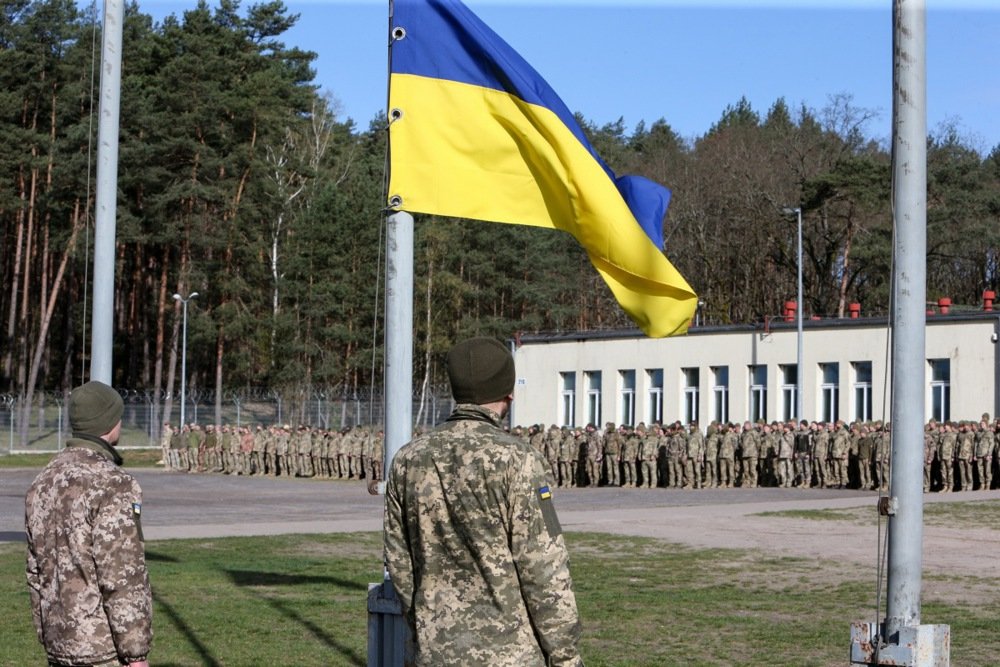
Ukrainian soldiers complete training by the Joint Forces Training Command. Photo: EPA-EFE/LECH MUSZYNSKI
Europe would struggle to collectively deploy even 25,000 peacekeeping troops to Ukraine in the event of a ceasefire or permanent cessation of hostilities, The Times reported on Tuesday.
According to sources familiar with the discussions, manpower and funding shortages are limiting many European countries’ ability to make serious commitments to the proposed “coalition of the willing” peacekeeping force, The Times said.
In response to British Admiral Sir Tony Radakin’s proposal to send a 64,000-strong force to Ukraine, defence ministers across Europe said there was “no chance” they could reach that number, The Times reported, with concerns including shortages of key auxiliary supplies that are typically provided by the United States, the need to field a much larger 256,000-strong force due to troop rotations and outstanding national security obligations elsewhere.
According to The Times’ sources, while Britain and France are both willing to commit some 5,000 to 10,000 troops each, Poland, Spain and Italy have made it clear that they will not send their soldiers, with Germany also hesitant to do so. “Without large populous countries committing [troops], it is a dead end,” the source said.
A British Ministry of Defence spokesman told The Times: “Advanced operational planning within the ‘coalition of the willing’ remains ongoing for options across land, sea and air, and to regenerate the Ukrainian armed forces. In the meantime, we’re continuing to support efforts for peace, while stepping up military support for Ukraine as Putin’s illegal invasion continues.”
Among countries on the frontline with Russia, Estonia and Finland have expressed concern that committing troops to Ukraine would “dilute” their border defences, The Times reported. The Baltic states have additionally made clear their opposition to any British or French plan that might involve relocating NATO forces currently based in Estonia, Latvia, and Lithuania as part of an effort to deploy a “reassurance force” to Ukraine.
